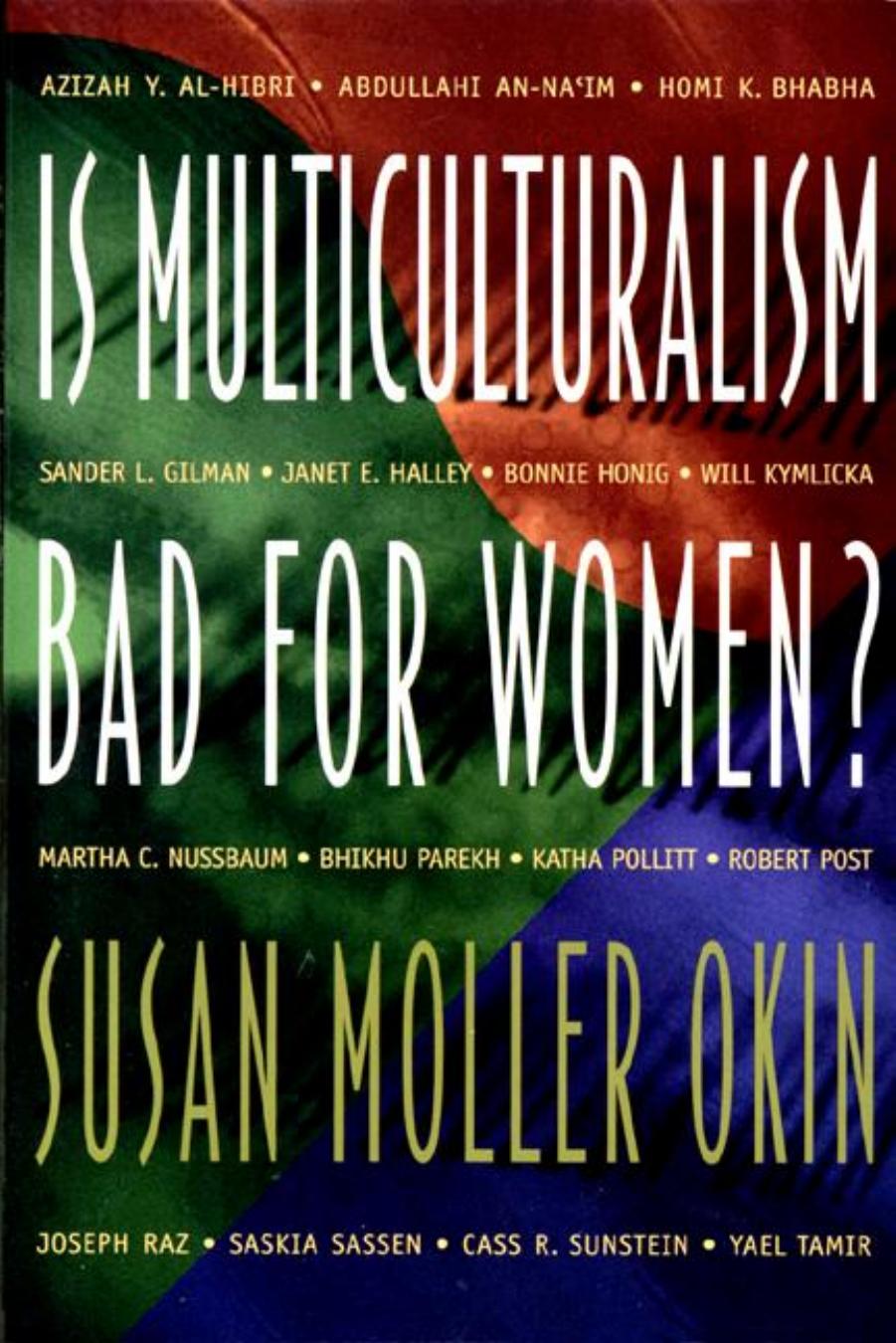Is Multiculturalism Bad for Women? by Susan Moller Okin

Author:Susan Moller Okin [Okin, Susan Moller]
Language: eng
Format: epub, mobi, pdf
Publisher: Princeton University Press
Published: 1999-08-09T00:00:00+00:00
Liberalism’s Sacred Cow
HOMI K. BHABHA
LIBERALS have a way of occupying the high moral ground while keeping the lower depths finely covered, moving convincingly from “causes” to cases, balancing theory and practice. What are the possibilities of maneuver in the midst of such fluency? I welcome Susan Okin’s central argument that “there is considerable likelihood of tension . . . between feminism and a multiculturalist commitment to group rights for minority cultures,” which persists even when the latter are claimed on “liberal grounds.” This is a useful corrective to the prevailing orthodoxy that establishes “equivalences” between disadvantaged groups, aggregating “communities of interest” without doing the hard work of specifying rights and interests, shying away from conflicts within, and between, minorities.
Let me, however, tweak the sacred cow by the tail (rather than indulging in the phallic fandango of taking the bull by the horns) and suggest that the force of Okin’s feminist advocacy rests on a restricted understanding of the “liberal grounds” on which feminism and multiculturalism might negotiate their differences about rights and representations. Okin’s view of the interface between feminism and multiculturalism is so focused on the “conflict” generated by the antifeminist and patriarchal effects of criminal cultural defense that, against her own best advice, she allows herself to produce “monolithic,” though gender-differentiated, characterizations of minority, migrant cultures—kidnap and rape by Hmong men, wife-murder by immigrants from Asia and the Middle Eastern countries, mother-child suicide among Japanese and Chinese provoked by the shame of the husband’s infidelity.
The cultural defense plea is the ethnographic evidence that, for Okin, invokes the basic idea that the defendant’s cultural group regards women as subordinates whose primary purpose is to serve men sexually and domestically. By contrast, “Western liberal cultures” (a phrase Okin uses to identify which side she is on) may discriminate between the sexes in practice, but the protection of domestic law produces an enabling and equitable familial culture for girls and women. Writing as I am from London, I can most readily address the British experience. The British civil liberty group Liberty would demur at Okin’s description of the egalitarian and empowering “Western” domestic scene. Human Rights and Wrongs, an alternative report to the UN Human Rights Committee, concludes that one-third of all reported crimes against women in Britain result from domestic violence and take place at home; in London, in 1993, one woman in ten had been assaulted by her partner. Adult women and children are overwhelmingly more likely to become the victims of violence at home than on the street or at the workplace.
But I am, here, less concerned with the domestic perspective than with the more global cultural assumptions that animate Okin’s arguments. Her narrative begins by pitting multiculturalism against feminism but then grows seamlessly into a comparative and evaluative judgment on minority cultures (largely represented by cultural defense cases) delivered from the point of view of Western liberal cultures (represented by the eloquent testimony of academic feminists). In my view, however, issues related to group rights or cultural
Download
Is Multiculturalism Bad for Women? by Susan Moller Okin.mobi
Is Multiculturalism Bad for Women? by Susan Moller Okin.pdf
This site does not store any files on its server. We only index and link to content provided by other sites. Please contact the content providers to delete copyright contents if any and email us, we'll remove relevant links or contents immediately.
| African-American Studies | Asian American Studies |
| Disabled | Ethnic Studies |
| Hispanic American Studies | LGBT |
| Minority Studies | Native American Studies |
Cecilia; Or, Memoirs of an Heiress — Volume 1 by Fanny Burney(32543)
Cecilia; Or, Memoirs of an Heiress — Volume 2 by Fanny Burney(31939)
Cecilia; Or, Memoirs of an Heiress — Volume 3 by Fanny Burney(31928)
The Great Music City by Andrea Baker(31915)
We're Going to Need More Wine by Gabrielle Union(19032)
All the Missing Girls by Megan Miranda(15937)
Pimp by Iceberg Slim(14481)
Bombshells: Glamour Girls of a Lifetime by Sullivan Steve(14047)
For the Love of Europe by Rick Steves(13888)
Talking to Strangers by Malcolm Gladwell(13344)
Norse Mythology by Gaiman Neil(13343)
Fifty Shades Freed by E L James(13230)
Mindhunter: Inside the FBI's Elite Serial Crime Unit by John E. Douglas & Mark Olshaker(9313)
Crazy Rich Asians by Kevin Kwan(9274)
The Lost Art of Listening by Michael P. Nichols(7487)
Enlightenment Now: The Case for Reason, Science, Humanism, and Progress by Steven Pinker(7305)
The Four Agreements by Don Miguel Ruiz(6744)
Bad Blood by John Carreyrou(6610)
Weapons of Math Destruction by Cathy O'Neil(6263)
